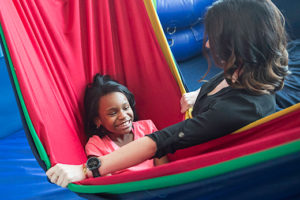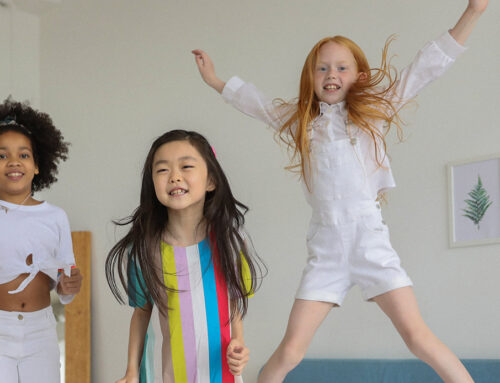Talking to your child about diagnosis can seem intimidating. But it doesn’t have to be. Diagnosis is just one way to describe one’s needs and help you understand how their brain is wired. Many people have shared that getting a diagnosis helped them understand themselves better and gave them the tools and language to self-advocate. When it comes to talking to your child about their diagnosis, here are some tips to start and continue the conversation, taken and expanded on from @developmentaldiscoveries on Instagram!
“It’s a diagnosis and a discovery. We’re discovering how you think and learn.”
Helping to reframe diagnosis and understand it, not as something “wrong,” but as uniqueness and a style of thinking about the world. When we do assessments, we explain to children that we are going to explore how they think and solve problems best. We know that neurodiverse children, those with Autism, Dyslexia, ADHD, and other differences in learning and behavior, truly do see and experience the world differently. And that can seem confusing to others. With diagnosis and other supports, children get the chance to learn about themselves and even teach others about their brain and learning style. Getting the words to describe ourselves and our needs helps build confidence and mastery.


“Everyone has their own pattern of strengths and challenges. Your pattern has a name. It’s a difference in how your brain is wired.”
Neurodiversity is a big word for adults to understand, let alone kids. While it seems like a big concept, it can also be an empowering one. Neurodiversity simply means that our brains are different. Brains wire themselves in ways that are entirely unique to us. And that unique wiring is what gives us our strengths, our challenges, our personalities, and very simply, our identities. Some people with similar patterns fit certain descriptors or diagnoses. ADHD has a pattern. Autism has a pattern. Even if you don’t have a diagnosis, your brain style and wiring fit into a pattern that is similar, but never exactly the same, as other people. As kids grow up, they grow into these patterns and begin to build their environments and their coping skills around them. Parents can help guide this process of development.
“Now that we know this, we have ideas for what can help you at home and at school. We know who to have on our team.”
One of the main reasons people seek diagnostic testing is to access resources; they hope to build a team to help their child succeed. That can mean beginning therapy, accessing an IEP, or finding community resources. And it’s okay to let your child know that. Whether they’re having trouble making friends, succeeding in school, staying out of trouble at home, or simply feeling safe and comfortable in the world, most children know when something is hard for them. When you start the conversation and encourage your child to express themselves, you open the door to healing and support. I often start conversations with kids by asking them what’s easy or fun for them and what’s hard for them. What do they wish was easier? And how would they feel if they got some help to make those hard things easier? Whether that means working with an occupational therapist to make writing easier, talking to a counselor to learn to control worries, or meeting a physical therapist to help them get stronger to keep up with their friends on the playground, this can be fun, encouraging conversation with kids.
“We love you exactly as you are and no matter what. We will be here to help you and support you to take on challenges.”
Being a kid is hard. And being a kid whose wiring doesn’t always match the demands of the world around them can be especially hard. The biggest thing kids need to hear when they’re having a hard time is that they are accepted, loved, and have somebody on their side supporting them. As a parent, you get to be that advocate, armed with your knowledge of the child. Their diagnosis is one aspect of who they are, but it can provide a great understanding of their gifts and support needs.
Conversations about diagnosis are ongoing. As your child grows up, their questions might change. Their feelings on their diagnosis will likely go through stages of appreciation and frustration. But having supportive families will enable them to build their potential and their confidence.

Eyas Landing is a therapy clinic with a mission to provide evidence-based and family-centered therapy services for children, adolescents, and their families. The primary goal is to deliver relationship-based interventions within the most natural environments and to empower families to reach their full potential. To achieve this goal, our highly educated, compassionate staff dedicates time and expertise to create experiences that maximize therapeutic outcomes. The strength, determination, and perseverance of our clients are evident as they succeed in therapy, and ultimately in their daily lives.
Eyas Landing offers a wide range of comprehensive services including Speech Therapy, Occupational Therapy, Physical Therapy, ABA Therapy, Social Work, Family Therapy, and Neuropsych testing. Services are provided throughout the Chicagoland area via Telehealth, In-Home, and in our state of the art clinic.
Want to learn more or you have a specific question? Feel free to connect with us here!


